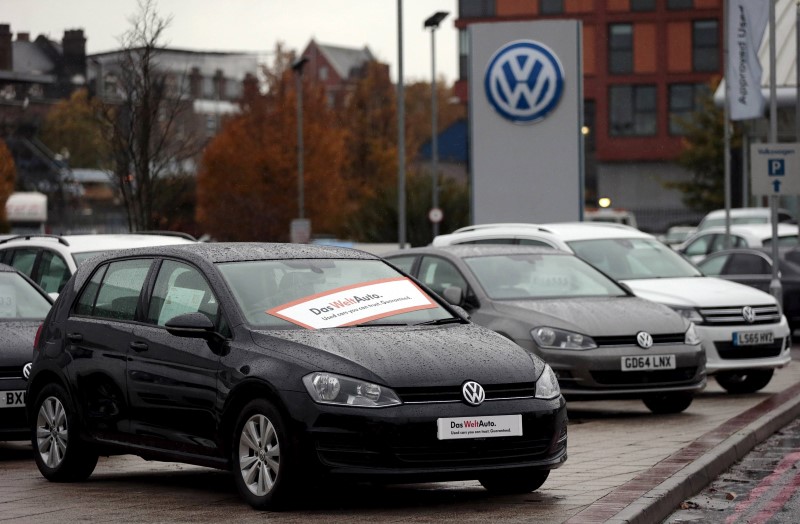By Nina Chestney
LONDON (Reuters) - The British government should take a tougher stance against Volkswagen after its emissions fraud, as well as increase the use of electric cars and reduce air pollution from transport, a parliamentary environment committee said on Thursday.
Almost a year after U.S regulators found that Volkswagen (VW) (DE:VOWG_p) had cheated in diesel emissions tests, the British government has yet to decide what action to take against Europe's largest automaker, even though it faces criminal investigations in the United States, South Korea and elsewhere.
The worldwide scandal, dubbed "Dieselgate", has hurt VW's reputation and business, and already cost it billions of dollars. VW last September admitted using sophisticated secret software in cars to cheat on exhaust emissions tests.
The Environmental Audit Committee, whose conclusions are not binding on the government, said VW had only just started to recall cars in Britain and UK authorities have yet to decide whether to take legal action against the company.
"There's been a worrying inertia from ministers in tackling the VW scandal and they should decide whether to take legal action," Mary Creagh, chair of the committee, said in a statement.
"They should ask the Vehicle Certification Agency to carry out tests to see whether, without the cheat devices, VW Group cars in the UK would have failed emissions tests."
The committee's advice follows similar calls from the transport select committee in July which said the government was too slow in deciding whether VW had broken the law.
The committee also said the uptake of ultra-low emission vehicles such as electric cars was too low to meet Britain's climate targets.
"We need 9 percent of all new cars to be ultra-low emission vehicles by 2020 if we're going to meet our climate change targets at the lowest cost to the public but the (government's) forecasts show it will get only around half way to this target," Mary Creagh, chair of the committee, said in a statement.

The government should consider making changes to vehicle taxation, including company cars, to make electric vehicles more attractive. It should also incentivise carmakers to manufacture the next generation of cleaner cars in Britain, the committee said.